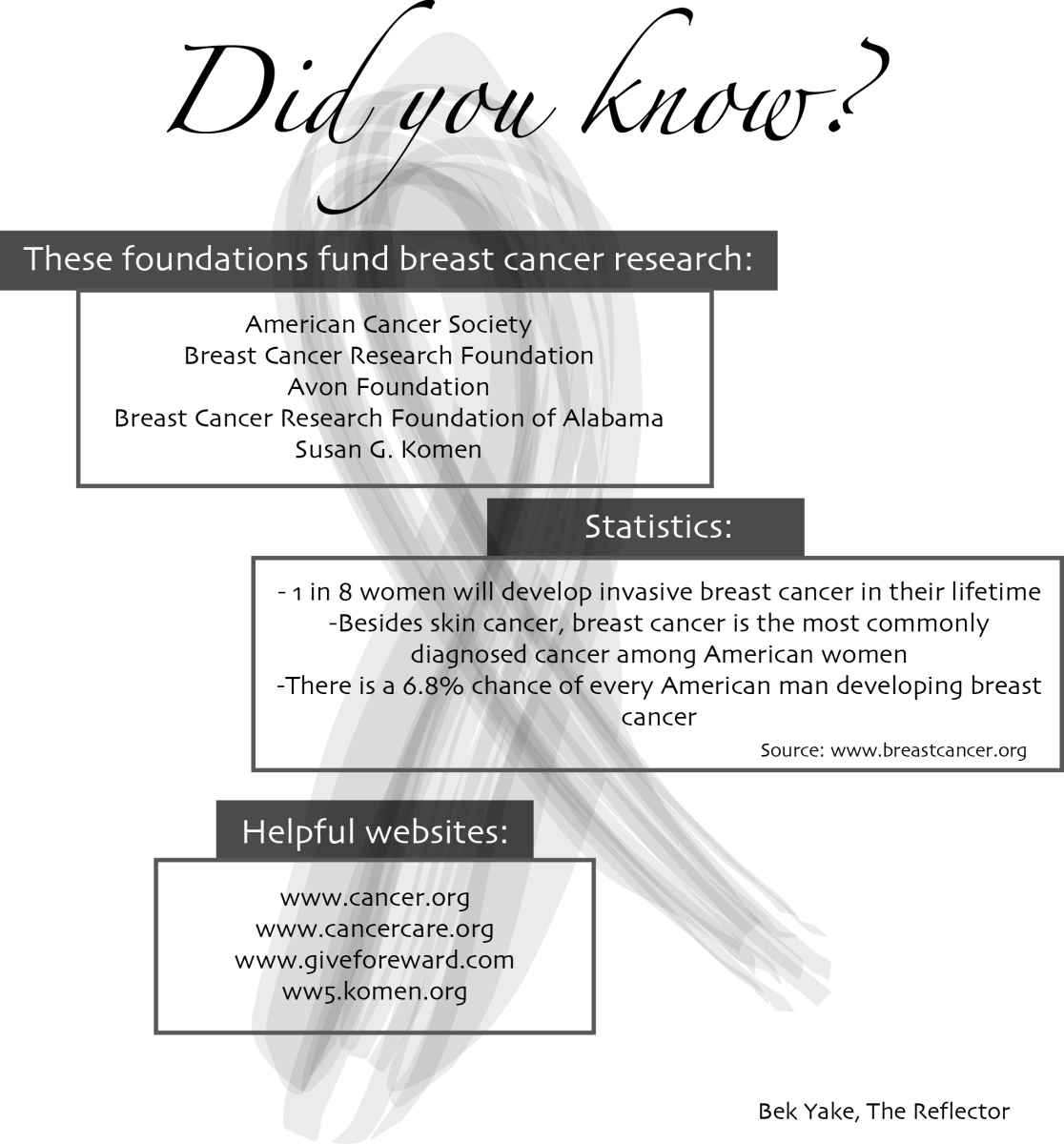Tomorrow, in the United States alone, it is estimated that cancer will claim the lives of over 1,600 individuals. Although this statistic is inherently disheartening, it is important to recognize there is still hope for a better future, there is still hope for a cancer-free tomorrow. This is exemplified by progress that has already been made. Thanks in large part to the efforts of the Susan G. Komen organization, breast cancer has been on a near steady decline since the year 2000, and over 2.8 million breast cancer survivors currently reside in the U.S.
In 1980, the Susan G. Komen organization began with a promise. Nancy G. Brinker, founder of the organization, promised her dying sister Susan that she would dedicate her life to ridding the world of breast cancer. According to the Susan G. Komen website, “What was started with $200 and a shoebox full of potential donor names has now grown into the world’s largest nonprofit source of funding for the fight against breast cancer.”
The website also reads,“To date, we have invested more than $2.6 billion in groundbreaking research, community health outreach, advocacy and programs in more than 30 countries. Our efforts have helped reduce death rates from breast cancer by 34 percent since 1990 and has helped improve five-year relative survival rates for early stage cancers from 74 to 99 percent. And we won’t stop until our promise is fulfilled.”
These words speak volumes to the perseverance of both Nancy Brinkler and of the organization as a whole. By turning a devastating loss into an outcry for support, Nancy Brinkler incited a revolution. This revolution, a war against cancer, has led to groundbreaking research that could someday serve to fulfill Nancy Brinkler’s promise.
As we find ourselves in the midst of Breast Cancer Awareness Month, it is imperative that we recognize there is still progress to be made. As opposed to 1980, the war on cancer is now being fought on multiple fronts. Areas such as public policy are becoming equally as important as traditional areas such as research. Although October is deemed Breast Cancer Awareness Month, the fight against cancer is a year-round commitment, a commitment that begins with safeguarding ourselves. The importance of regular screenings cannot be overstated in the fight against cancer. According to cancer.gov, “Estimates of the premature deaths that could have been avoided through screening vary from 3 percent to 35 percent, depending on a variety of assumptions.” This means somewhere between 18,000 and 171,000 deaths a year, in the United States alone, can potentially be prevented.
However, in addition to recognizing the progress to be made, it is equally as important that we celebrate the lives that have been saved. Human life is to be cherished and every death that is prevented is a testament to the resiliency of individuals such as Nancy Brinkler. Although cancer has caused devastation in the lives of many, as a society, it has not yet broken our spirit. Over the next several years that spirit will be tested. I truly believe the efforts of individuals like Nancy Brinkler will continue to light the way and inspire hope for a cancer-free tomorrow.





















































































